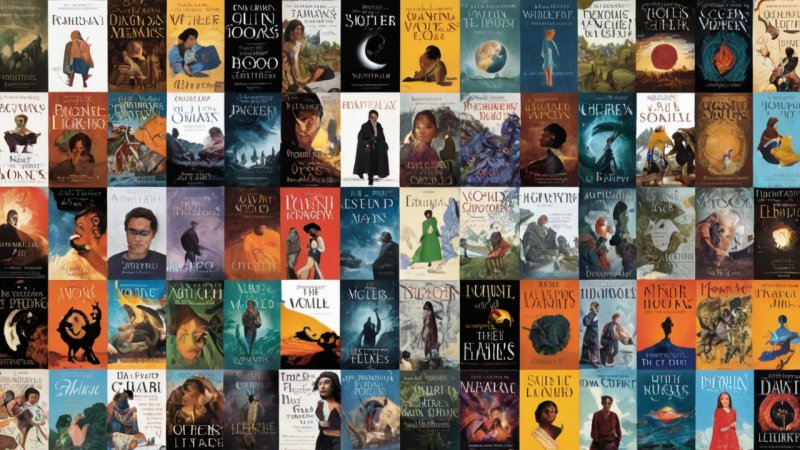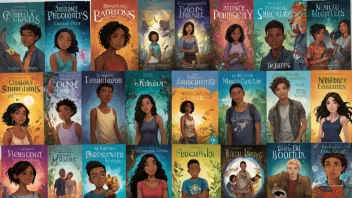In the ever-evolving world of literature, some books emerge that not only capture the imagination of readers but also redefine the very genres they inhabit. These bestselling works challenge conventions, inspire new narratives, and often spark cultural conversations that resonate beyond the page. From genre-blending novels to groundbreaking non-fiction, these books have not only achieved commercial success but have also left an indelible mark on the literary landscape. In this article, we will explore several bestselling books that have redefined their genres, examining their unique contributions and the ways they have influenced both readers and writers alike.
Fiction: 'The Road' by Cormac McCarthy
When it comes to post-apocalyptic fiction, Cormac McCarthy's 'The Road' stands as a harrowing yet poignant example of how a narrative can transcend its genre. McCarthy strips away the typical tropes of survival stories, focusing instead on the profound relationship between a father and his son as they navigate a bleak, desolate world. This emotional depth and minimalist prose challenge the traditional expectations of dystopian literature, allowing readers to explore themes of hope, love, and the human condition in the face of despair. The book's stark imagery and philosophical undertones have influenced countless authors, prompting a shift towards more character-driven narratives in a genre often dominated by action and adventure.
Non-Fiction: 'Sapiens: A Brief History of Humankind' by Yuval Noah Harari
Yuval Noah Harari's 'Sapiens' has redefined the non-fiction genre by blending history, anthropology, and philosophy into a compelling narrative that reads like a novel. This bestseller takes readers on a sweeping journey through the history of humankind, presenting complex ideas in an accessible manner. Harari's ability to weave storytelling with factual evidence has inspired a new wave of popular history books that engage a broader audience, encouraging readers to reconsider their understanding of humanity's past. The success of 'Sapiens' has not only sparked discussions around human evolution and societal structures but has also paved the way for interdisciplinary approaches in non-fiction writing.
Science Fiction: 'The Left Hand of Darkness' by Ursula K. Le Guin
Ursula K. Le Guin's 'The Left Hand of Darkness' is a groundbreaking work that challenged the conventions of science fiction by exploring themes of gender and sexuality in a thought-provoking manner. Set on a planet where inhabitants can change their gender, the novel goes beyond the typical adventure narratives of its time, focusing instead on the complexities of identity and interpersonal relationships. Le Guin's exploration of gender fluidity not only redefined the genre but also contributed to broader conversations about gender in literature and society. Her work has inspired a generation of writers to tackle complex social issues within the framework of speculative fiction, pushing the boundaries of what science fiction can achieve.
Young Adult: 'The Hate U Give' by Angie Thomas
Angie Thomas's 'The Hate U Give' has become a seminal work in young adult literature, redefining the genre by addressing pressing social issues such as race, identity, and systemic injustice. Through the eyes of Starr Carter, a teenager who witnesses the police shooting of her friend, Thomas crafts a narrative that resonates with young readers while encouraging them to engage with real-world issues. The book's success has led to an increase in young adult novels that tackle difficult subjects, promoting diverse voices and perspectives within the genre. Thomas's work not only entertains but also empowers readers to think critically about the society they live in, making it a transformative addition to contemporary literature.
Children’s Books: 'The Gruffalo' by Julia Donaldson
In the realm of children's literature, Julia Donaldson's 'The Gruffalo' has redefined storytelling with its innovative use of rhyme and rhythm. This picture book combines clever storytelling with vivid illustrations, captivating young readers while imparting valuable lessons about courage and wit. Donaldson's unique narrative style has influenced a wave of children's books that prioritize engaging storytelling, encouraging a love of reading from an early age. The success of 'The Gruffalo' has demonstrated that children's literature can be both entertaining and educational, paving the way for a new generation of authors to explore imaginative storytelling techniques.
Classics: 'Beloved' by Toni Morrison
Toni Morrison's 'Beloved' is a powerful narrative that has redefined the classic American novel by addressing the legacy of slavery and its impact on identity and memory. Morrison's lyrical prose and intricate storytelling invite readers to grapple with the complexities of the past, challenging the traditional canon of American literature. 'Beloved' not only offers a haunting exploration of trauma and resilience but also emphasizes the importance of telling marginalized stories. Morrison's work has influenced countless writers across genres, encouraging a deeper examination of history and culture in literature.
Conclusion
These bestselling books have transcended their genres through innovative storytelling, deep thematic exploration, and a commitment to engaging with the complexities of human experience. Each work has not only achieved commercial success but has also inspired a shift in literary trends, encouraging readers and writers to expand their horizons and explore new narratives. As we continue to embrace the power of literature, it is essential to recognize the impact of these transformative works and the ways they have redefined what it means to tell a story.






